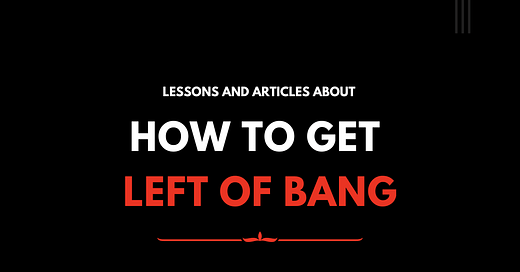What would Ender do? Effective Communication
This is a guest post by Rick Gonzalez.
"Do you have any explanation for your behavior, young man?" asked the officer.
Ender shook his head again. He didn't know what to say, and he was afraid to reveal him out to be. I'll take it, whatever the punishment is, he thought. Let's get it over with.
"We're willing to consider extenuating circumstances," the officer said. "But I must tell you it doesn't look good. Kicking him in the groin, kicking him repeatedly in the face and body when he was down- it sounds like you really enjoyed it."
"I didn't," Ender whispered.
"Then why did you do it?"
"He had his gang there," Ender said.
"So? This excuses anything?"
"No."
“Tell me why you kept on kicking him. You had already won."
"Knocking him down won the first fight. I wanted to win all the next ones, too. So they'd leave me alone." Ender couldn't help it, he was too afraid, too ashamed of his own acts; though he tried not to, he cried again. Ender did not like to cry and rarely did; now, in less than a day, he had done it three times. And each time was worse. To cry in front of his mother and father and this military man, that was shameful. "You took away the monitor," Ender said. "I had to take care of myself, didn't I?"
“Ender, you should have asked a grown-up for help," Father began.
But the officer stood up and stepped across the room to Ender. He held out his hand.
"My name is Graff, Ender. Colonel Hyrum Graff. I'm director of primary training at Battle School in the Belt. I've come to invite you to enter the school."
After all. "But the monitor-"
"The final step in your testing was to see what would happen when you monitor came off. We don't always do it that way, but in your case-"
"And he passed?" Mother was incredulous. "Putting the Stilson boy in the hospital? What would you have done if Andrew had killed him, given him a medal?"
"It isn't what he did, Mrs. Wiggin. It's why."
This excerpt is from the book Ender's Game by Orson Scott Card. This book has been on the Marine Corps recommended reading list, and for good reason, as it follows the story of a gifted child as he is challenged mentally and emotionally; and as he overcomes his personal struggles to eventually lead to his success. It is a book of hope, of how one should act when faced with adversity. At times, when faced with difficult decisions, I like to ask myself, what would Ender do?
Ender's Game is a story set in the future in which a young boy, Andrew "Ender" Wiggin, is selected to become the Battle Commander of the Imperial Fleet. This is a time when Earth has banded together to create an Imperial Fleet to defend the Earth against their most feared enemies, the Buggers. Earth survived an attack by the Buggers, a superior, more advanced foe, 70 years prior. The Imperial Fleet was expecting another attack, but they desperately needed a commander to lead them into victory. The Imperial Fleet spent years monitoring only the brightest children to attend Battle School, which would prepare them to join the fleet.
Throughout the book, Ender is challenged against physically superior enemies. He must rely on his intellect to create the advantage. He observes every situation thoroughly to make sound decisions. Ender's first altercation is when a young boy, Stilson and his gang surround him with malicious intent. An altercation which Ender violently ends.
I chose this passage because it highlights how Ender responded to a particular threat. Often times we can get sucked into the effects of an event, without ever looking into WHY it happened. The young Stilson boy was brutally defeated because Ender felt he had no other choice. Fortunately, for Ender's sake, his violent confrontation didn't end with him behind bars. Colonel Graff had received the WHY. The justification from Ender was enough for Colonel Graff to determine that Ender had enough information to make a sound, effective decision. Perhaps if Ender had provoked the fight, or was blinded by rage he would be guilty of acting with malicious intent. Ender was able to communicate effectively.
Effective communication is an important aspect of Combat Profiling. It is also an overlooked aspect of leadership, not that leaders cannot communication effectively, but that they do not require it from their subordinates. We teach the domains of Combat Profiling so that Marines can effectively articulate WHAT they are seeing which will assist in WHY they made a decision.
Veterans are often more effective in combat, whether you are a Marine or a law enforcement professional. This is because they have more experiences, or File Folders, which have been proven methods to effectively keep them alive. Articulating what these veterans are seeing is what is important to us. We are trying to eliminate communication that sounds like, "Well, I shot him because he looked funny" or "I didn't get a good vibe from him, so I detained him" You must be able to articulate WHY. We can effectively train our subordinates, hopefully creating an atmosphere of intelligent decisions.
If you get the opportunity, I would highly recommend reading Ender's Game. It is a quick read and will motivate you to become a smart, professional warrior.



